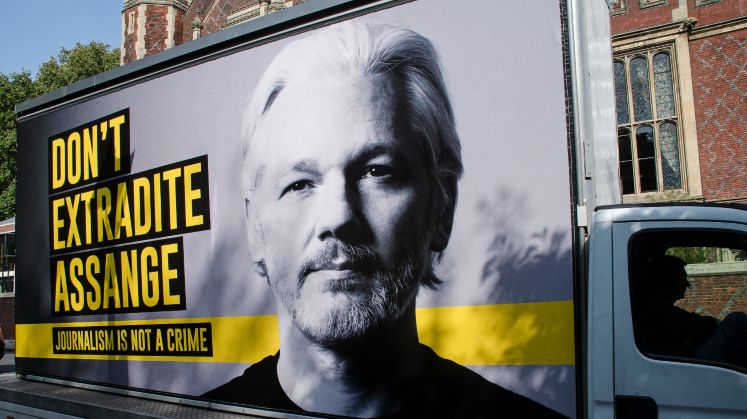 The proposed Communications Data Bill has proved deeply controversial, generating widespread debate about privacy and civil liberties. Paul Bernal offers an overview of the dynamics within each of the major political parties on such issues and argues that the politics of privacy are deeply complex.
The proposed Communications Data Bill has proved deeply controversial, generating widespread debate about privacy and civil liberties. Paul Bernal offers an overview of the dynamics within each of the major political parties on such issues and argues that the politics of privacy are deeply complex.
The news that the Lib Dems are apparently ready to ‘ditch’ the Communications Data Bill – the so-called ‘Snoopers Charter’ – will come as welcome news to privacy advocates and other supporters of civil liberties. As with too many things ‘Lib Dem’, it’s still very much a ‘maybe’. Even if the Lib Dems do come out as firmly against the bill, that may not be enough to defeat it, even with the committee report, due out shortly, likely to be highly critical of the bill. The problem is a deep one, connected with the party politics of the UK. All three major political parties are deeply conflicted over the issues – and that conflict may well allow the proposal to be pushed through regardless of the apparent opposition of the people, of civil society, of the main players of the internet industry and many more. The situation is far from clear cut, however, and there are threads within each party that work both for and against the idea.
Conservatives
The Tories, as very much the senior party in the Coalition, are to a great extent right behind the programme: after all, they’re the ones proposing it. In some ways the programme fits directly into some traditional Tory agendas: ‘Law and Order’ has long been central to Conservative politics, from the more extreme ‘hang ‘em and flog ‘em’ sections of the party to the slightly more rational ‘prison works’ mantra of Michael Howard et al. Moreover, a certain kind of old-fashioned patriotism could be said to fit in with the anti-terrorist agenda – and it’s easy to see the ‘if you’ve got nothing to hide, you’ve got nothing to fear’ argument used by those who essentially see criminals and terrorists as basically ‘evil’, distinct from and a threat to good, ordinary people.
On the other hand, there is another strong, traditional thread in Conservatism that goes directly against the idea of surveillance on this kind of scale and in this kind of way – and it should be no surprise that one of the most eloquent and consistent speakers against the programme has been David Davis. Civil liberties should be central to Conservative philosophy – and in particular the kind of civil liberties that protect against intrusion into privacy. An Englishman’s home is his castle, after all! What’s more, the kind of programme envisaged smacks of ‘big government’, and the ‘nanny state’, things that a Tory should instinctively reject. David Davis expresses this view very well – and I’m sure what he says resonates with a lot of Tory MPs and Tory supporters.
Labour
Labour may well be even more conflicted over the issue than the Tories. On the one hand Labour is supposed to stand up for the little people against oppression and control, and there is a strong association between the left wing and the ideas of freedom that this kind of a programme deeply undermines. Anyone who remembers the Thatcher years knows all too well how the forces of the police and even military intelligence were used against the unions (and not just during the miners’ strike) and against ‘left wing’ groups such as CND – the recent scandal of long term police infiltration into environmental groups (including long term relationships between undercover officers and and activists) fits into this pattern.
Yet there are three strong factors that make Labour far from certain to oppose the programme. Firstly, there’s an authoritarian streak on the left – it would be unfair to suggest it might be a touch ‘Stalinist’, but there’s a certain degree of a ‘command and control’ attitude from some, and a sense that government needs to take a grip of things in this kind of a way. Secondly, there’s the long term need of the Labour Party to counter the Tory argument that Labour are ‘soft’ on crime – this attitude verged on paranoia during the last Labour administration, and is still clear in the current Labour party. Thirdly, there’s the deep problem surrounding the ‘War on Terror’ and the Labour Party’s role in it: Tony Blair and Gordon Brown were more than complicit in the ‘War on Terror’, they drove it forward. These three factors produced a series of desperately authoritarian Home Secretaries, each bringing in more draconian and anti-civil libertarian measures than the last. David Blunkett, Charles Clarke and John Reid presided over some of the most appalling pieces of policy in living memory, from the push towards ID cards to the data retention measures that ultimately lie behind the current programme.
For Labour, the challenge is to break with the past – to admit (or at least recognise) that mistakes were made by the last administration, and to be brave enough to say that Blair and Brown got this wrong. That last part is really hard to do for politicians at the best of times – and the signs are not good. Yvette Cooper’s stance against the idea of giving prisoners the vote show that the authoritarian streak in Labour is still present and strong.
Liberal Democrats
In one way, the Lib Dems should be the least conflicted – which is, perhaps, why they’re the party that seems readiest to come out against the proposal. These measures are pretty fundamentally ‘illiberal’, and the Liberal Democrats as a party should be simply and directly against them. A few short weeks before the last general election I heard Nick Clegg speak excellently at the Privacy International 25th Birthday Party, talking directly about the rise of the ‘database state’ under Labour and how directly opposed to such things he was both personally and politically. For the Lib Dems, there really shouldn’t be an issue – and if they were currently in opposition, against a majority Tory government, I’d be willing to bet a lot of money that as a party they’d oppose the measure.
However they’re not in opposition. They’re part of the coalition, and that brings with it several pieces of baggage. First of all, they have to work with the Tories – and in particular, Nick Clegg has to work with David Cameron. Secondly, they have to appear ‘governmental’ – and Nick Clegg wants to look ‘statesmanlike’, which many politicians seem to think means doing the wrong, illiberal and unpopular thing, to appear more ‘responsible’. Thirdly, if they come out against this, many of their supporters may ask why they didn’t come out against other policies – student fees, privatising the NHS, welfare, legal aid etc – which were just as much against ‘liberal’ principles. To an extent they’re hoist by their own petard. They’re part of this government now, and may feel they have to ‘see it through’. There have already been so many ‘betrayals’, one more hardly makes any difference.
Three parties, alike in turmoil
So all three parties have their internal conflicts – which makes them ripe for the ‘security lobby’ to exploit. It does, also, give an opportunity for opposition to the bill to be generated. The excellent Privacy International, the Open Rights Group, Big Brother Watch and others have worked very hard to oppose the current measures. The numerous written submissions to the parliamentary committee (which can be found here) were excellent – and substantially all highly critical of the proposal from a wide range of perspectives. If the committee’s report reflects the evidence submitted, their report should be devastating – and yet it may not be enough, if the political forces in favour of the ‘hard-line’ surveillance approach are too strong.
I’d like to think that these forces are not overwhelming – and that the ‘good’ side of each of the parties is able to resist, and to stop us being railroaded into something that, ultimately, I don’t think that many people, whatever their political persuasion, either want or believe that we really need. The politics of privacy are complex – one of the things that I have found particularly refreshing since I started working in the field is that it can unite people with otherwise very different political perspectives. Let’s hope that this unity is enough.
Note: This article gives the views of the author, and not the position of the British Politics and Policy blog, nor of the London School of Economics. Please read our comments policy before posting.
Paul Bernal is a lecturer in the UEA Law School, specifically in the fields of Information Technology, Intellectual Property and Media Law. He completed a PhD at the LSE in early 2012, having been supervised by Conor Gearty and Andrew Murray. His research relates most directly to human rights and the internet, and in particular privacy rights. You can follow Paul on Twitter here.






